A Glitch in the System: Legacy Russell and Lynn Hershman Leeson in Conversation about “Glitch Feminism”
Lyndsy Welgos attempts to connect Legacy Russell and Lynn Hershman Leeson via iPhone conference call but the attempt glitches. Here we pick up the conversation between Legacy and Lynn, connected post-glitch.
Lynn Hershman Leeson: First and foremost, Legacy, I feel really grateful that you wrote Glitch Feminism. I actually read it a couple of times. It’s so important and broad and viral. I do think that we should start the conversation by talking about the glitch that happened while we were trying to get the recording working. It’s almost karmic.
Legacy Russell: Yes, we were stuck in the glitch trying to get this conversation going. It really is the most amazing kind of confluence. It speaks to us being thought partners in different ways. The glitch in itself clearly has a presence in your work as well. I knew you had a history of creating work that played with the idea of the glitch in lots of different ways. But I didn’t realize that it was part of a current project that you’re working on—that this is something that is going to take on a new chapter in your work, too. So it’s exciting to realize that we’re still actively exploring the glitch in both of our practices.
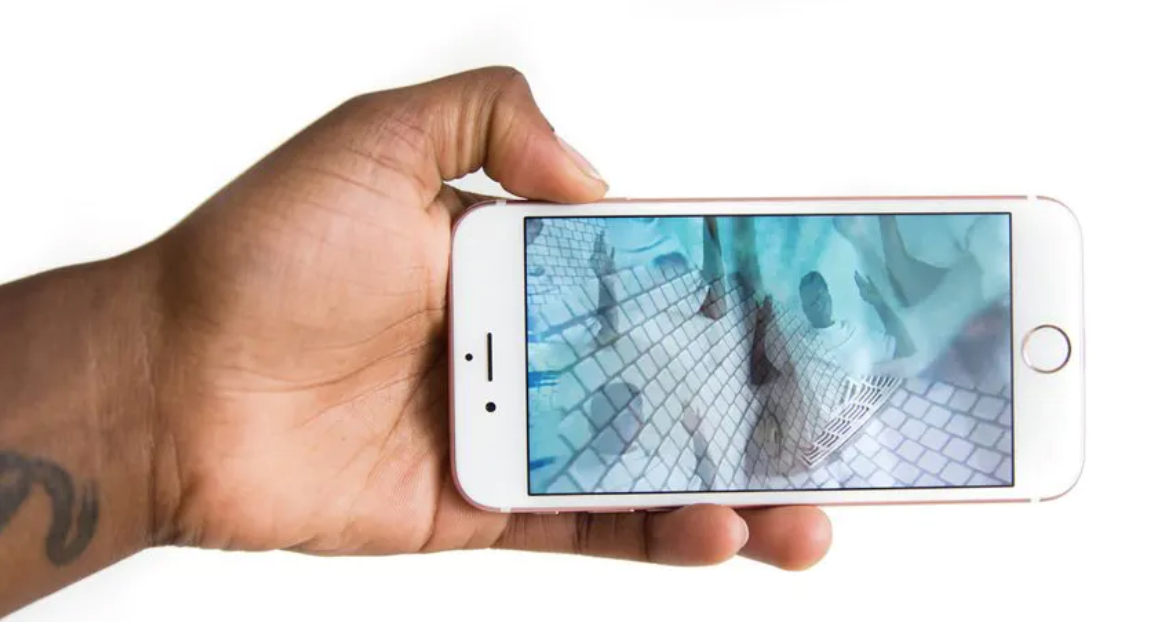
It is exciting because there’s also a couple of generations of separation between us. Glitch is just in the atmosphere right now, almost regenerating itself.
The glitch for me is a point of interest because mechanical glitches force us to think about the space between body and machine; they remind us that when we are using machines, there is actually distance between us and these things that we are using. That distance is usually invisible, but we notice it when things break down. The glitch is an error, but it can be productive, too, because it pushes us in different directions. It makes us think about how our bodies are, or are not, able to operate across different systems. It allows us to see where systems succeed, and where they fail. Maybe it even creates ways to think about building worlds differently, so that our bodies can be better housed as they transform, change, and get free.
Anything mechanical is not organic. That’s the antithesis of something that is growing on its own: without consciousness, it doesn’t need an order. Or an externally imposed order, anyway.
I think the body in and of itself can be a glitch. Strategically thinking about the glitch through a feminist lens feels really important. I recognize too that we’re living in a world where on the daily, we’re often told that, as femme and female-identified people, our lives are not valuable. And while I recognize that certain strides have been made toward progress, I would still say the system is quite broken. I would be curious to hear more about how you think about the glitch. In your new media work, certain aspects of womanhood are represented as being glitchy. The notion of a glitch can push us to interrogate whether bodies have to be defined as they currently are.
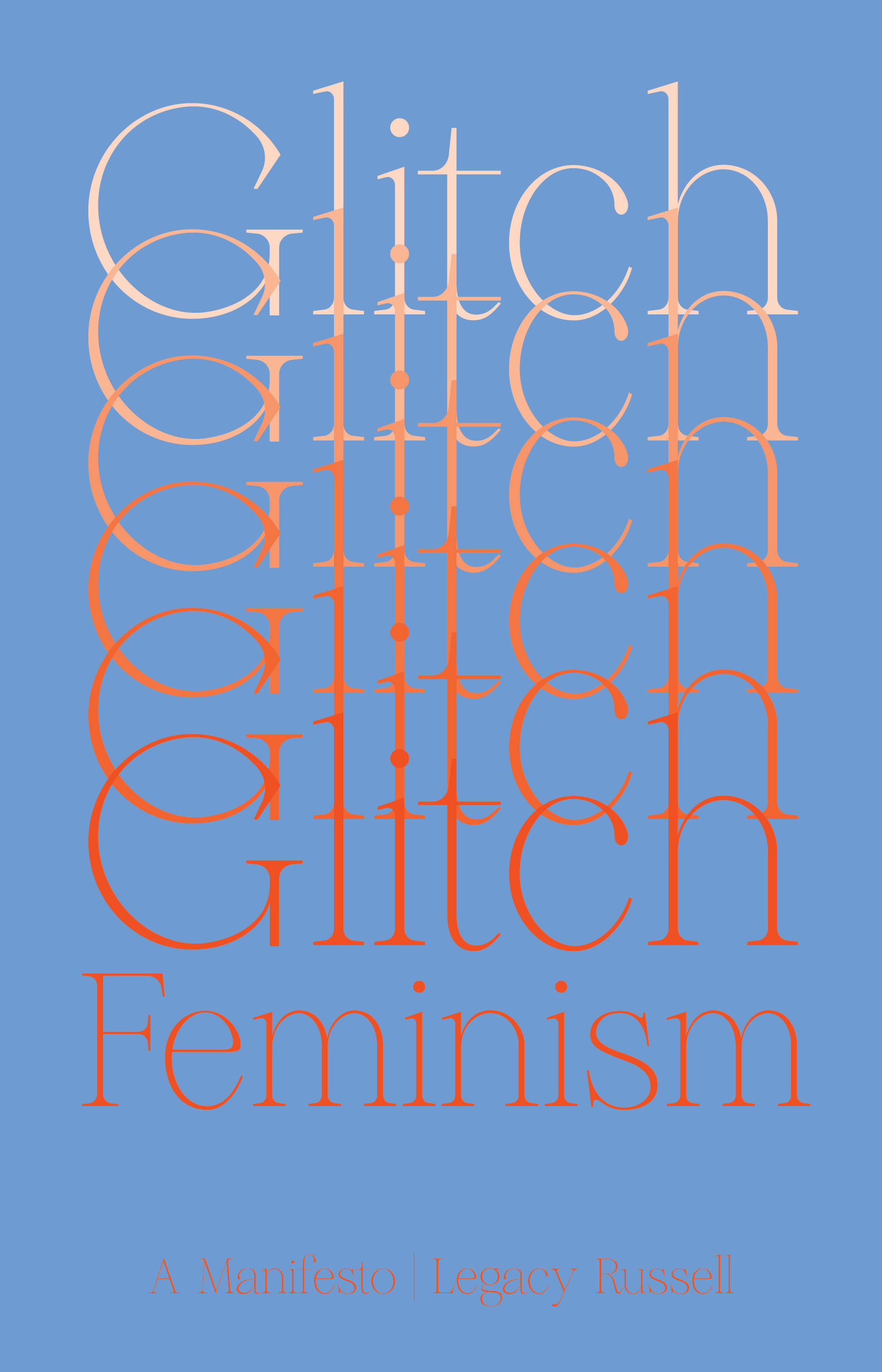
Most of my important work happened on the cusp of some disaster. The glitch occurs when something goes completely wrong. It resides inside the anatomy of something that failed, and in looking at that anatomy, you often come up with a completely new strategy for survival. I see this all as a different kind of evolution, a different kind of DNA. I have a piece title DiNA (2000–2006), she’s an artificial intelligence bot. The “I” in her name stands for internet. I think of her like internet DNA, traveling in and out of time. DNA is a double helix, with two interconnected strands. DNA also becomes unstable in mutation. But I don’t think that the shift that occurs in this instability is a mistake. It’s an evolution that can help us imagine new ways of being.
I imagine this is tied to your decision to make interactive media, too. Lorna (1983) was one of the first works that I had ever seen of yours, and I saw it at a very young age. And I remember being struck by how you were pushing a relationship between the body and the machine that made that kind of DNA almost inextricable. What’s happening in physical space is always going to be intertwined with what’s happening in the digital realm. This is true even when we’re “away from the keyboard.” It’s important to think about the relationship between the physical and the digital as a kind of continual loop. It’s problematic when people try to splice what is real from what is not real, because it creates an opportunity for people to maybe discredit how the movements that happen in the two spaces are intertwined, like the DNA double helix. In glitching different systems, we are forced to do the work of proposing new directions, as uncomfortable as it may make us.
That’s why I used the remote in Lorna (1983). We call it a “remote”, but it’s not distant or far away—it’s in our own hands and we’re in control of it. The remote reminds us that action isn’t beyond our capacity, that we do have the power to create, and change, the narrative. Right now, I think that we’re going through multiple corrections at the global level. We see rampant racism, the pandemic, concerns about health care, global warming—not to mention the growing threat of the extinction of the planet and all living things. These are all the result of our human choices and behaviors. They’re glitches that need to be fixed if we are to survive in a conscious, harmonious, and sustainable manner.
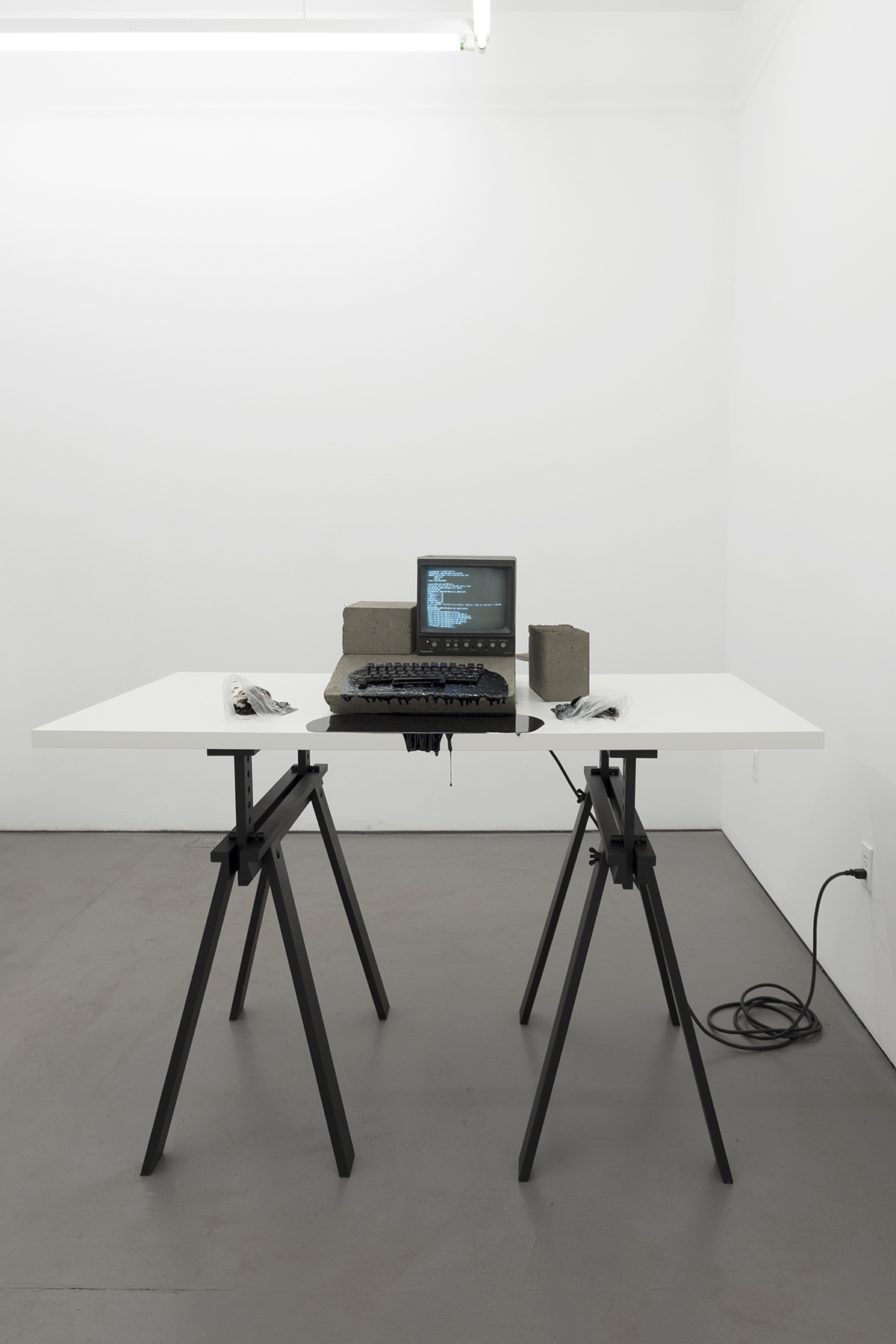
I’m reminded of the conversation I put to the Faces cyberfeminist Listserv about facial recognition software. Because of the pandemic, and the way it’s forced us to largely live our lives online, our current moment has been filled with glitches. But in the group, people had all different ideas about the freedoms, or even utopic emancipations, that might be made possible in a moment when everybody is wearing face masks. For some people, it’s a great opportunity—a kind of unifier and equalizer. But other folks were very wary because, depending on what kind of body you are, wearing a mask heightens the possibility of you being surveyed and maybe even being a target for certain types of state violence.
Wearing masks in public is kind of a physical metaphor for what an online presence is. Being “faceless” is something that has become really politicized in and of itself. Even the notion of “being accountable” requires a certain level of visibility. But I think there are also ways we can refuse visibility as a political strategy, and in turn achieve a different kind of empowerment. This is true whether we’re talking about physical space or the digital realm.
I know that there are three states in the US that have now banned facial recognition: Oregon, New Hampshire, and California. The Algorithmic Justice League is doing such great work in bringing awareness to what is so perverse about our culture of surveillance. Even if companies aren’t using artificial intelligence to track your face, they’re often tracking other things about you, like your gender or where you live. These algorithms are invisible, but they create swarms of vital and pernicious information about us that can be used against us. And we have no way to control it, because we don’t know who’s collecting the information. We don’t know whether or not it’s accurate. But it’s truly damaging, like a form of terrorism.
Absolutely. And I think people are getting increasingly anxious about the digital in this socially distanced moment. In the span of six months, from March to present, I feel like we have re-lived thirty years of history, in terms of people’s relationship to the internet. In March, there was some crazy renaissance, where suddenly everybody was waking up to loving all things digital. It was like 1990 all over again. And then as the months went by, people suddenly remembered the internet can be a complicated space: it is racialized, it’s gendered. Since then, we’ve kept moving constantly between these two poles, on a day-to-day, hour-by-hour basis. But there’s an upswing within that. I’m reminded of your essay, Romancing The Antibody (1996). We are encouraged to, as you said, “simultaneously create not one but several identities,” and in that, expand ourselves, right? Expand how we are able to move and engage different parts of ourselves, even when our movement may be increasingly surveyed and restricted.

Romancing The Antibody is all about using the “virus” to outwit the control that recent history has inflicted upon us. We now have the ability to create multiple species that are derived from CRISPRrized DNA. Similarly, there are infinite ways we can viralize ideas as well as species.
I think the notion of the virus makes talking about the glitch really meaningful, though also really confusing. With COVID-19, people want to talk about viruses quite literally. But the virus can also be a metaphor. It can manifest as a viral politic, infecting society toward a generative end. It feels productive to me—it’s not something I think that we should shy away from. Because we still operate in fundamentally unwell spaces. Fighting a literal virus with a metaphorical virus, a viral politic, creates an opportunity. And that’s exciting, and I think it is worth further considering how we can do that work.
I do think it’s curative. More and more medical treatments rely on using your own immune system to overcome toxicity. That’s how antibodies work. That’s how vaccines work. And it’s what you’re talking about with the glitch. Antibodies exist in individual human bodies, of course. But an antibody can also go into a cultural body and seek out toxins in order to neutralize them.
Absolutely. I think the level of thinking and research that you’ve done over decades demonstrates that artists are also social scientists. They are the thought leaders, they are the innovators, as well as creative strategists, in so many ways. Artists are able to use their imaginations to think through these bigger, global questions and conditions. I think that’s been made very real in these past few months.
Well, I really appreciate you saying that. My generation never understood what I was doing. I had to wait for your generation to be born to get credibility.
I find that so ironic and strange. When I first encountered your work, even though I was young, I instantly understood the logic. There was no moment of wondering how to connect the dots. It’s incredible to hear you say that it took an entire generation for people to understand your work. The world really is quite literally catching up to itself. Your work is so powerful and necessary, but the reality is that female artists are so often gatekept from making their mark on art history. With Glitch Feminism, I’ve tried to do some reparative work by recognizing these incredible artists across generations who have so often been undervalued.
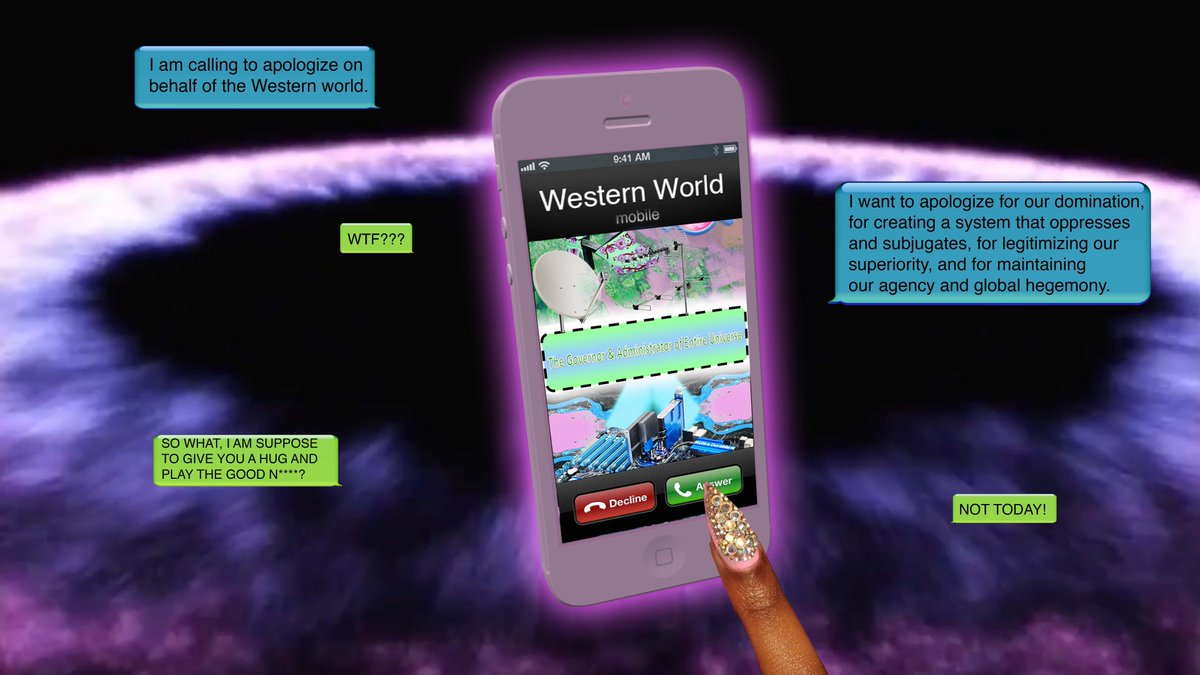
I was seventy-three before most of my work was shown. I also think that isolation and being considered crazy offers you a lot of freedom. It’s kind of this wonderful force, like the glitch is a wonderful force. Just like the glitch that came into our phone call as if to announce its presence.
As I’ve had different conversations with folks about Glitch Feminism, people often ask about this notion of performativity. The internet has made creativity and self-fashioning so ordinary. So many people are artists in their own right, but perhaps they do not feel empowered to claim that by definition. The internet provides an opportunity for people to actually realize that they are artists, because they come into contact with communities through digital space. They can see themselves reflected back through these kinds of moments of contemporary art discourse. The internet is where art and life come into contact—it’s a wonderful and strange place to stand.
I think that we have to reject anything that puts limitations on what we’re able to produce in our lifetime, anything that challenges our ability to create. The enhanced and enlightened glitch can create this new infection that will doubly cure us, hopefully.
The thing about the virus and the antibody is that it’s not always something that’s tangible. You can’t put your hands on it. So the question of faith gets entangled in these moments of broader revolution and change. One has to really trust the people and the communities that we’re in to carry us through these shifting tides.
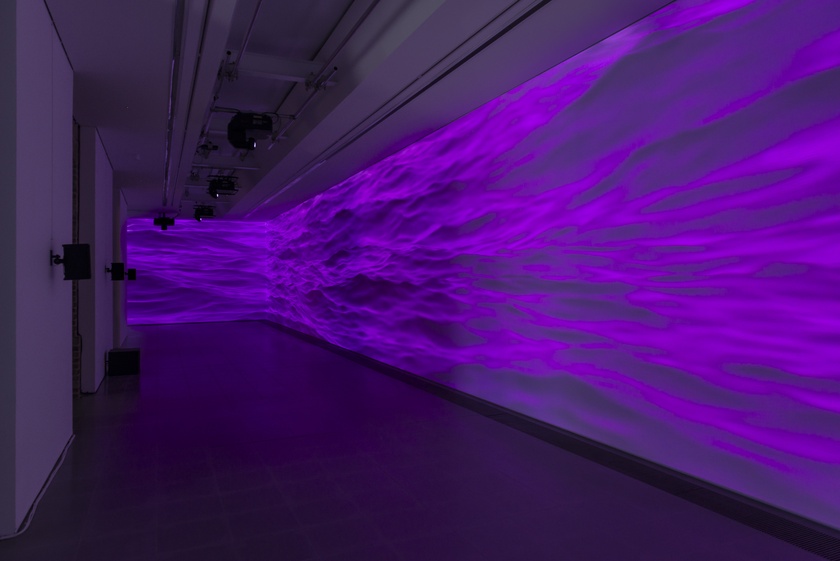
Antibodies have always been there, they’ve always been inside of us. Nature is intelligent. It does quite a bit to keep us surviving, so all we need to do is pay attention to what’s already there and find a way to make it work for us. There are even these tiny little wax worms now that have developed a taste for plastic, and they’re in the oceans now, eating the plastic. Nature somehow gave those organisms the wisdom to think that plastic tasted good, so that the planet could survive. I think we really have to trust the part inside of us that we share in common with these organisms. We, too, have the ability to purify the earth. There is this project with water that I’m doing with the Wyss Institute at Harvard. It came out of the idea of natural evolution in the glitch. I’m trying to dedicate my life to looking for the big problems that are keeping the globe from surviving. I was able to work with people at Wyss who developed something that is called an Aqua-pulse. It creates a pulse of electricity and light—just like in the film Metropolis (1927), when the light goes through a woman’s body and she becomes the cyborg or the double-self. This system created clean water out of polluted water, one liter a minute, and I think this is going to make a huge difference. This system was supposed to be in the New Museum show that was postponed due to COVID. It will now first be seen in Gwangju in Korea in February.
I’m curious to hear your view on artificial intelligence. Not only can AI intersect with questions of the body, but it can potentially expand to be a human consciousness itself. I think of artists like Stephanie Dinkins. She has done some amazing work thinking about the kinds of biases that are wrapped up in different types of AI. Algorithms, too, are often biased. In the next generation, we need more queer coders, female coders, people of color doing that work, so that there can be an expansion of what thought looks like. Artificial intelligence often betrays the faults of humanity.
I don’t think AI is “artificial” at all. [Chuckle.]
Right.
But I also think AI could be extremely useful in guiding our intuition, allowing us to see developing patterns. I truly believe we need symbiotic partnerships with new technologies and developing systems, so that we can avoid dystopian uses and instead work with them to develop enlightened shifts in the system that now exists. Trevor Paglen and Kate Crawford recently created a project that makes abundantly clear how these algorithms can take the prejudices of a culture with them. Bias, exclusion, and judgment are ingrained in the algorithms, and the programmers write the software. It’s clear this is causing a deep infection in our ability to survive all together as a culture. All this has to change.
You mentioned Trevor Paglen, but I also think of American Artist, whom I discuss in Glitch Feminism in relation to the work that they’ve done about predictive policing. Zach Blas has also done work exploring the way facial recognition can be strategically manipulated. Surveillance, predictive policing, of course, has a very particular body and mind. The “watchful eyes” that are doing that watching come with a certain level of bias and supremacy. Not all bodies are watched equally, and that in and of itself presents a major problem. There isn’t a separation between the body and the machine. There are actual bodies, actual humans, producing these technologies. And those technologies then alter, or inhibit, the ability of other bodies to participate in and exist in the world. The glitch allows us to push ourselves, perhaps, to be more evolved in working toward breaking these systems. That is kind of the ultimate imagination.
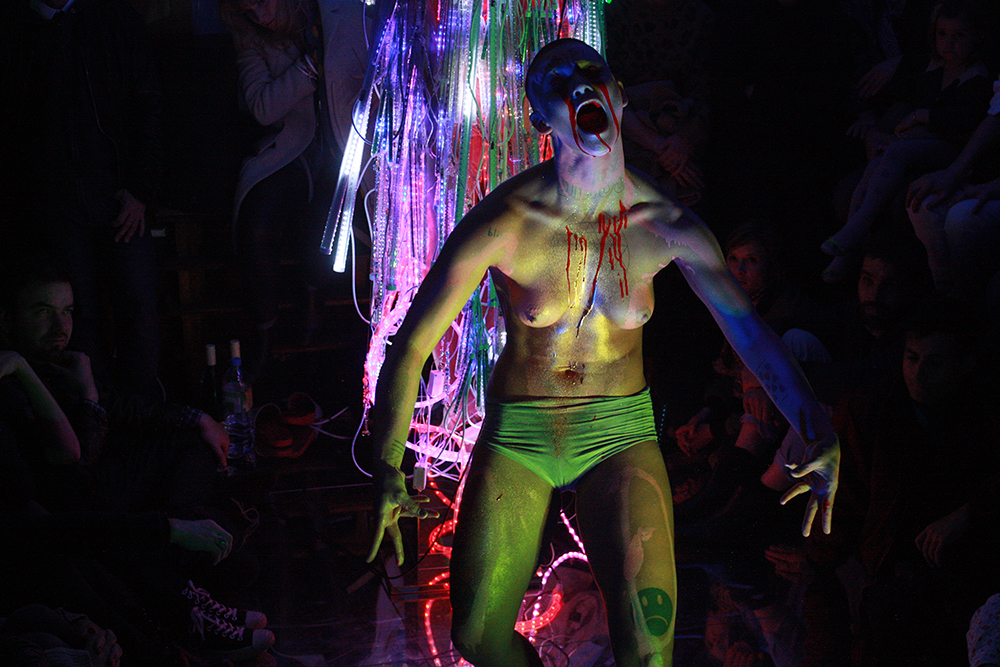
Absolutely. There is fallibility in the machine. What are your plans for the book? How are people going to find out about it? It’s such an important book.
It’s going to be an experiment, much of the initial conversation around the book is going to happen online. And that in and of itself is kind of surreal, because it brings much of the book’s thesis about online and cyber communities to new heights, and to this next generation of thinking.
Lynn Hershman Leeson is an artist and filmmaker based in San Francisco.
Glitch Feminism is published by Verso Books, out today!